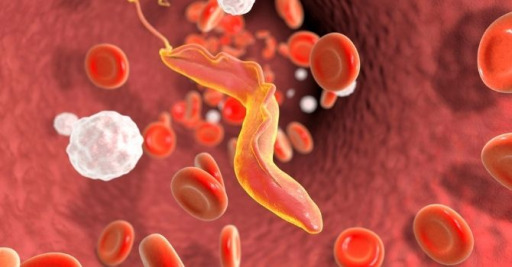Conjugated acrylonitriles: a simple chemotype with tripanocide activity
The exploration of the chemical space in search for new molecular structures (chemotypes) with pharmacological activity (pharmacological space) constitutes an important aim in current organic synthesis, and very especially in the field of drug design and development. A practical approach to this demand for new chemotypes relies on the construction of chemical libraries, that is, a collection of molecules that is available for screening in search of bioactivity.
In this line, the team led by Drs. García Tellado and Tejedor Aragón, from the Molecular Structure, Design and Function Research Group of the Institute of Natural Products and Agrobiology (CSIC), in collaboration with the team of the Institute of Tropical Diseases and Public Health of the Canary Islands (ULL) led by Drs. Lorenzo-Morales and Piñero Barroso, have developed a research program focused on the search for new chemotypes with antiparasitic activity. With this objective, a small 32 members library focused on conjugated acrylonitrile structure (see figure) was screened against the epimastigote state of the parasite Trypanosoma cruzi, responsible of Chagas disease.
The library was synthesized in a fast, efficient and sustainable way by a base-catalyzed transfer reaction of nitrile group to the parent conjugated alkyne. The library was screened for antiparasitic activity, and physiological effects characteristic of apoptotic processes such as chromatin condensation, mitochondrial membrane potential variation, ATP production, and plasma membrane permeability were evaluated in the treated parasites. From the 32 compounds tested against the epimastigote stage of T. cruzi, 11 were selected based on their selectivity index, and 5 of them (see figure) triggered physiological events related to the PCD. This study highlights the therapeutic potential of acrylonitriles as novel trypanocidal agents. Currently, there are only two drugs available against the acute phase of this disease, and both have significant side effects, require long treatments, and a resistant strain has already emerged.

This work has been published in the open access journal Pharmaceuticals.
Carlos J. Bethencourt-Estrella, Samuel Delgado-Hernández, Atteneri López-Arencibia, Desirée San Nicolás-Hernández, Ines Sifaoui, David Tejedor, Fernando García-Tellado, Jacob Lorenzo-Morales and José E. Piñero. Acrylonitrile Derivatives against Trypanosoma cruzi: In Vitro Activity and Programmed Cell Death Study. Pharmaceuticals 2021, 14, 552.
